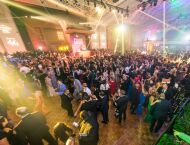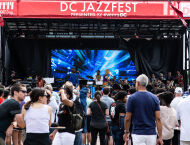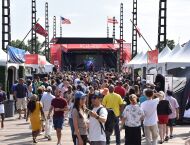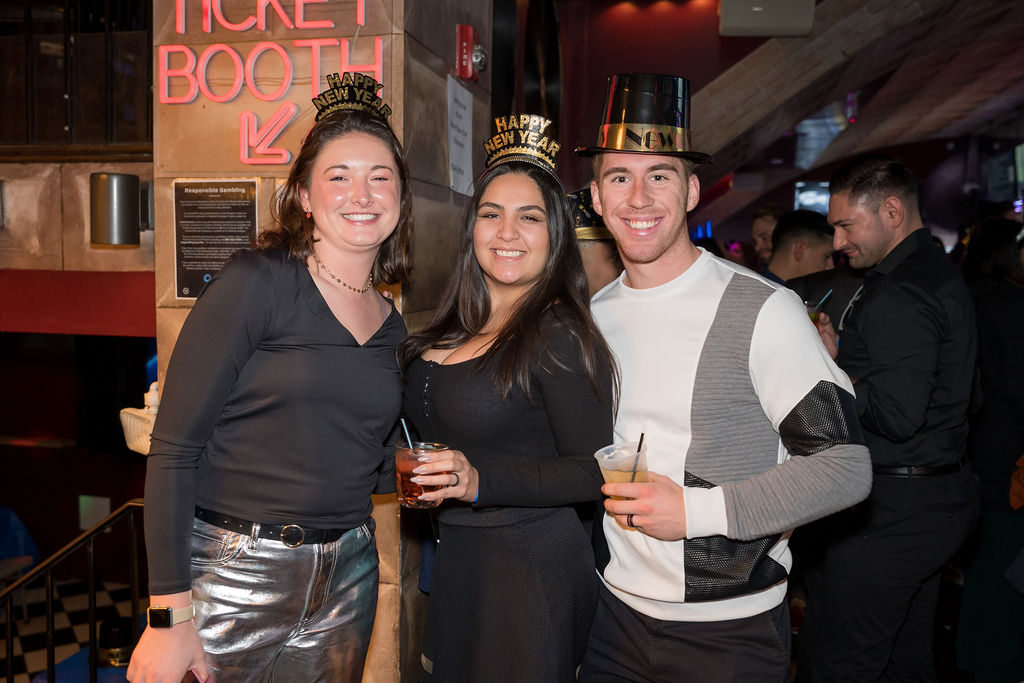Music
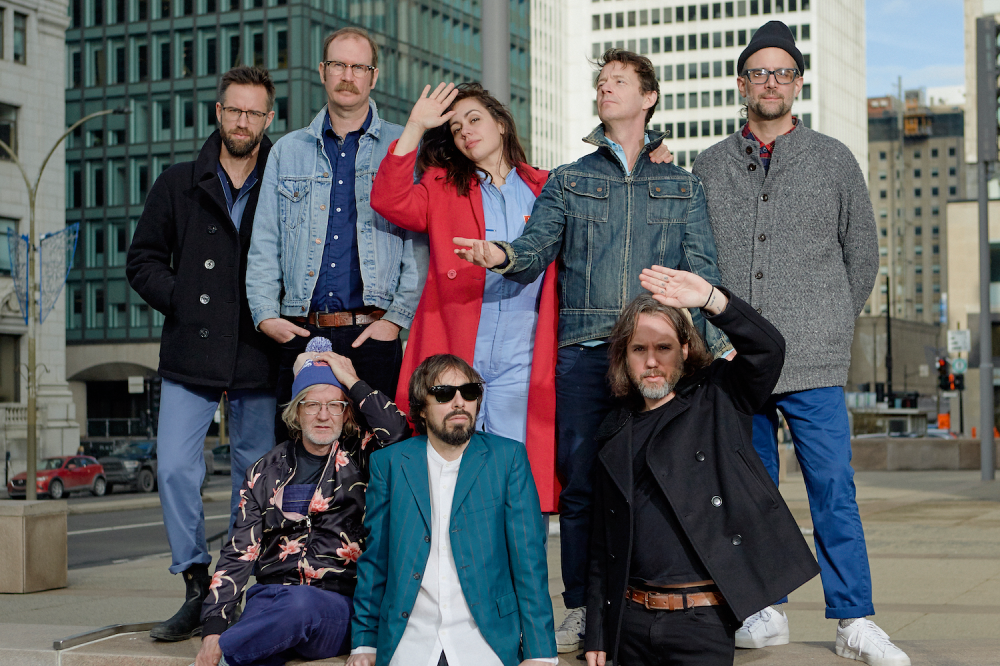 Broken Social Scene. Photo by Richmond Lam.
Broken Social Scene. Photo by Richmond Lam.
20 Years of Broken Social Scene and “You Forgot It In People”
October 11, 2022 @ 2:00pm
Canadian supergroup Broken Social Scene will spend two nights in D.C. at The Lincoln Theatre on October 13 and 9:30 Club (sold out) on October 14 for the 20th anniversary of their second album “You Forgot It In People.” The early aughts classic earned the 2003 Alternative Album of the Year Juno Award and was one of the most critically acclaimed albums of the year. (The Pitchfork review at the time gave the album a 9.2/10 and declared “I wish I could convey how they’ve made just exactly the kind of pop record that stands the test of time…. You just have to hear it for yourself.”) Next week is your chance.
Broken Social Scene has always been less a band and more of a Canadian rhizomatic organization, a complex interlocking web of musicians and artists whose creations have influenced and inspired the last twenty years of modern rock music. Members come and go–sometimes as few as six or as many as 19 members have appeared together onstage and on albums–and the related side and solo projects include (but are not limited to) Feist, Metric and Stars.
District Fray spoke with Kevin Drew, guitarist, singer, and founding member of Broken Social Scene, from his hotel room in Omaha, Nebraska.
District Fray: Happy 20th anniversary on “You Forgot It In People!” Why get the band back together at this time, especially considering the diversity and successes of the different post-Broken Social Scene endeavors and projects?
Kevin Drew: Well, we’re all doing our own things. And honestly, we already knew that we were going to honor this album after 20 years. We knew when it was coming and before COVID we were making plans. With the tour, we’re just bringing the songs with us, taking them to the people and it’s been nothing but a love fest so far. It’s just honoring music that we’ve made and we’re not thinking about it too much. Somehow the title “You Forgot It In People” seems more relevant now than it did 20 years ago.
I think back to when Broken Social Scene first came out, and it was this moment in time of these expansive Canadian super groups, such as the New Pornographers, too. When you started this project, did you have any sense of who Broken Social Scene would become or the sort of legacy that you guys would have across a whole generation of musicians?
As Charles [Spearin] in our band put it recently, “we were just trying to impress ourselves.” We were trying to make a record that we would love. When we were in the studio, we were so happy to be together just making cool music for our friends. And when we hooked up with [album producer] David Newfield, he was in another plane. He was just doing a whole different style of production than what we were used to. So it kind of created this messy chaos. We were sort of green to a certain extent, and it was initially based on friendships, even though we all came from different musical backgrounds.
Everybody tells those over 40, “Don’t look back. Don’t go backwards. Try to move forward.” But what really dawned on me when we played these Massey Hall shows in Toronto [in April 2022], is trying to figure out how to continue moving forward while also looking back. We’re on this tour but we’re not chasing our career; we’re honoring our career. That’s something that I stand by with this band. If you want to come on stage and join us, you can come and honor it. If you’ve got other shit to do, go do it. So, I feel like we’re on this memory muscle tour. It’s just us going out and saying, “Hey, thank you so much. We’re still here. These songs were part of your life. They’re a part of ours. Here you go. We’re not on TikTok, but we know how to play these tunes.”
You know when you’re discussing this muscle memory and looking back, I think about the album and how you were in your early twenties, but some of the songs were real teenage anthems–obviously “Anthems for a Seventeen Year-Old Girl” but also “Late Nineties Bedroom Rock for the Missionaries”–capture this cusp of adulthood.
Yeah, well, that’s youth. Youth is the drink that every artist wants to have on a nightly basis. And I think there’s so much in youth that’s inspired. Obviously as you get older, you change your trajectory of where you’re placing your lyrics because you live more, experience more, you lose more and you gain more. You have divorces, funerals, weddings and children. And then you’re writing songs for your kids or you’re writing songs for your father or mother who passed. But I do believe that there’s so much youth in you when you’re coming out of the gates. And in retrospect, those moments of youth and innocence are what forms how you want to live your life and if you want to be an artist, to paint or dance or you express yourself through creation. It’s always in the youth stages where you start to figure that out. I was 25 when we started working on that album. And that youth was still in my back pocket. Also, I was married and looking ahead. But you know that most of us men are Peter Pans just trying to be leaders, relying on what we learned in high school and we take that through the rest of our lives. So it’s always good to drink the cup of youth.
The lyrics are very esoteric and dreamlike for some of the songs. I love “Cause = Time,” but I still have no idea what the hell it’s about. What have you been rediscovering or maybe discovering for the first time about the songs?
Well, you know, we are able to rewrite “Shampoo Suicide” every night if we want to. It’s such a freeform with no vocals really, except for “All the lights we were.” I still find a lot of freedom even within the lyrics. The songs have become family. They live inside your lungs and you sing them and off they go and but they’re always around you. So I don’t necessarily find any new meaning in the lyrics themselves. Because they’re all memories of the time when you look back, but they never get old. Every time I play these tunes, they feel fresh to me. And I think maybe what changes the most are the relationships within the band. That changes, the songs stay the same. It’s more about the interrelationships from being in a band as long as we have been and people come in and go. It’s just people choose to live their lives and as you get older, you get more stubborn, but the songs: they’re clear. They’re not changing at all. They know what they’re doing.
How have your relationships with each other changed and evolved?
Well, I think the relationships within Broken Social Scene differ depending on who you’re talking to. Some people have stayed in each other’s lives. Some have and some haven’t. “You know it’s not the same as it was,” that motherfucker Harry Styles wrote that song that we all love. I mean, how easy it is to say ‘it’s just not the same as it’ but that’s brilliant. But if we all get in the room now, I believe that room will be filled with love. It’s an open door policy for whoever wants to come back or wants to leave. Even when they leave, the music has stuck around and stayed in our lives. The wonderful thing is that so many careers came from this band. Even before when they were trying to get their shit together and it’s kind of like this band locked it in and everyone went and took off. I mean Metric [with BSS members Emily Haines and James Shaw] was so beautiful. They’re playing “Anthems for a Seventeen Year-Old Girl” on their last Canadian run. And that’s just such a sweet thing to hear. We all adore [BSS member Leslie] Feist and the way that she handled herself in that whole situation that went down with Arcade Fire. We were just so proud of her and knew that she was going to land while the people were chirping around as they do, giving all these opinions on what she should do. She’s just being true to herself. And Metric’s got this great record and they’re out there touring and Stars [BSS members Amy Millan and Evan Cranley] dropped an incredible album [“From Capleton Hill”] this year. So we check in with each other and we send our love to everyone. We used to all be in Toronto, but we all live all over the place now.
In addition to the tour, this year you also released an album of B-sides ”Old Dead Young: B-Sides & Rarities” and have a graphic novel “Broken Social Scene: You Forgot It in People, The Graphic Novel” coming out soon. What can you tell us about those two projects?
Well, the B-Side record was curated by a guy from our label [Arts & Crafts], Cameron Reed. He really just thought it would be lovely to put that out. And we had a wonderful time with that. The graphic novel was to honor “You Forgot It In People” and my brother brought us to Z2 Comics. We just relied on them and had open conversations about artists and I have yet to read or see anything. But that was because I wanted to just have them to have complete creative freedom so we just went on the basis of the work that these artists have done and we were quite honored that they were working on it. The coolest thing is that they followed the sort of the mantra of what we kind of were doing so I knew we were in good hands. I’m very excited to see the finished product.
You are playing two different venues while you’re in D.C., both 9:30 Club and the Lincoln Theatre. Do you have different second sets lined up? What will you do with your downtime?
Well, I’m gonna hang out with my man Daniel J. Jones in Washington, D.C. He wrote the [post-9/11] torture report for Senator Feinstein; he spent six years in a CIA basement going through 6.8 million documents. And a buddy of mine made a movie [“The Report”] about him. It turns out he was a huge Tragically Hip fan [Drew produced the final Tragically Hip album as well as solo albums by frontman Gord Downie]. So we’ve been friends ever since. Secondly, there’ll be two different shows. We will play “You Forgot It” both nights. But we’ll have to do two different sets, just sprinkling in different jams based on the velvet seating [at Lincoln Theatre] and the 9:30 Club hoodie.
Final question. The tour is winding down. What’s next for you or for the band?
I think we’re going to talk about that after this tour. We’re having such a lovely time. It’s been really great to be back with each other and the vibe is 11 out of 10. It’s gold. So that’s very exciting. I did make a record and I’m in the process of figuring out when I’m going to put that out. And there’s always things coming down the pipes with everyone else, too. Are we gonna get back in the studio? I think when we’re finished with this tour, we’re gonna sit down and talk and see if we’re all gonna get together and write again. But I just live in the moment. It took me 46 years to be able to do that. So I just try to stay in it as much as I can.
To paraphrase your song “Lover’s Spit,” “you’ve grown old and done some shit.”
We certainly have. I wrote that when I was married. What I’ve done throughout those years is just honor who I wrote it for, and I sing it for those who want to hear it now. We’re all growing old and doing some shit. You have to go through all the shit, but there’s a beautiful side of freedom as you get old. I can’t stress that enough to people not sure what they’re supposed to do. There’s a fucking next chapter. And it’s hard sometimes. But please for the love of God, get to that next chapter.
Broken Social Scene plays Lincoln Theatre on October 13 and 9:30 Club October 14. Tickets are available for the Lincoln show. Purchase tickets here.
Broken Social Scene: brokensocialscene.ca // @brokensocialscene


